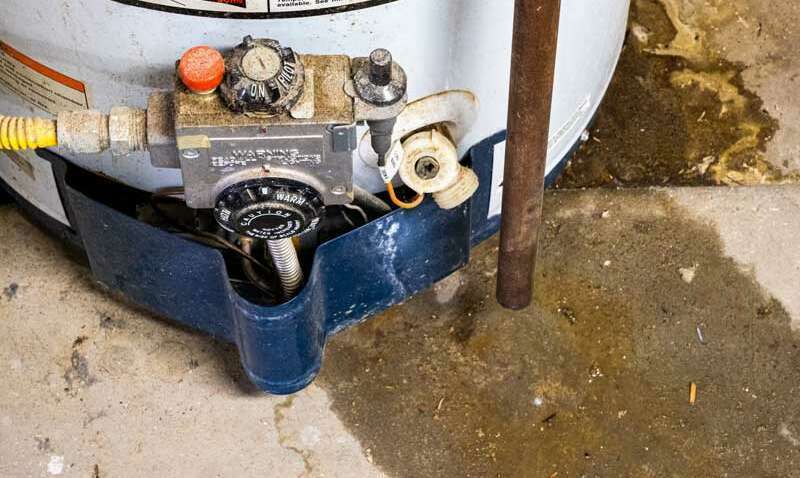Does Homeowners Insurance Cover Water Heater Leaks?
If you’ve had an issue with a water heater leak, it can cause additional damage to your property. You’ve probably started wondering exactly what does homeowners insurance cover in the case of a disaster. The good news is that in many cases, a homeowners policy does cover home water damage as long as you can show that the incident wasn’t your fault.
However, proving that you were a responsible homeowner isn’t always an easy thing to do. In order to successfully file a claim, you need to show that you were up to date with your maintenance and couldn’t have reasonably done anything to prevent what happened with your water heater. If your home has suffered damage from a broken or water heater leak, learn a few tips here to make sure that you maximize your chances of filing a successful claim!
Determine the Cause
One of the most important parts of filing a successful claim is having an adjuster determine the cause of your issue. You might suspect that the damage came from your water heater, but until you have a claims adjuster come out and inspect the damage, you won’t have much luck in successfully filing a claim.
As soon as you figure out that you’ve got a problem with damage from a water heater leak, it’s a good idea to call PPA and have an adjuster take a look at the problem and confirm that the damage came from your expected source. Before you start thinking about repairs, you need to make sure that an adjuster has had a chance to look things over, because if they can’t confirm the source of the issue, it becomes a lot harder for you to successfully prove your claim.
Check Your Warranties
Sometimes, you don’t even have to go through insurance in order to cover the damage when it’s caused by an appliance. If you happen to still have your water heater under warranty, you can discuss the situation with your insurance company, but you’ll likely have even more success going through the company that made your water heater and explaining the situation.
Warranties are there for a reason, and if you can prove that you met all of the terms for your warranty’s requirement, the company will legally be obligated to fulfill the terms of your agreement. Insurance is there to protect you whenever you need it, but if something happened that was clearly the fault of the company that made your appliance, that protection will prove very valuable to your needs. As long as your item is still new enough to have a warranty, this is an avenue worth exploring.
Keep Good Records
Long before you have any kind of problem with your house, you need to make sure that you’re keeping record of any changes that you make to your property. That includes all maintenance tasks, because if something goes wrong with any appliance in the home, the adjuster needs to be able to see that you’ve done your job in keeping up with proper maintenance on the machine.
For example, water heaters need to be replaced every 10 years before they’re expected to reach the end of their life cycles. If you’re still using a water heater that’s been around for 15 years, it’s very possible that your claim might get denied because you knowingly had a water heater that was past the expected date of use and didn’t bother to replace it. If you haven’t been inspecting the tank on a regular basis and didn’t notice a leak that you could have had repaired, that could count against you in the final decision.
Remember, you’re entitled to just compensation as long as there was no reasonable way to prevent the incident from happening. But if you didn’t take proper care of your water heater, it’s hard for you to get the funds you deserve.
Make an Inventory
OK, so you’ve successfully determined that you’ve had water damage to your home from your water heater, and your records prove that it wasn’t your fault that something went wrong. Now what do you do? Make sure that you document anything and everything that could have been damaged as a result of the incident.
When you get a visit from a Platinum Public Adjusters claims adjuster, you’ll want to present them with proof of damage from the leaky water heater and explain where they picked up the damage that took place. As long as it made sense for the items to be where they were, you’ll likely receive just compensation for their value. If the water heater caused the basement to leak and you had a television get damaged down there, for example, you’re likely to receive the proper value for the set.
Along with providing proof of damage, you’ll also want to provide proof of value for expensive items. It’s not a big deal if you don’t have a receipt for an item that was only worth about $20, but if you want to get compensated for a $500 appliance, such as a dryer, you’ll want to be able to show what you paid for it and prove its value.
Meet Your Deductible
Remember, insurance only starts to chip in after your own responsibilities are met. Once you’ve covered your part of the repairs, your policy will be there to cover whatever home damage still needs to be repaired. That’s one reason why going through your warranty can be an effective plan if you still have it intact: it’s going to cover everything without worrying about your deductible.
If you’re wondering exactly what does home insurance cover in the case of damage, we’re here to help you figure out exactly what you can file a claim for and how to get that done. If you’ve got questions about recovering what you need to fix your home and replace possessions, PPA Services is just a call away. We’re happy to answer all questions about your damaged or leaky water heater!





